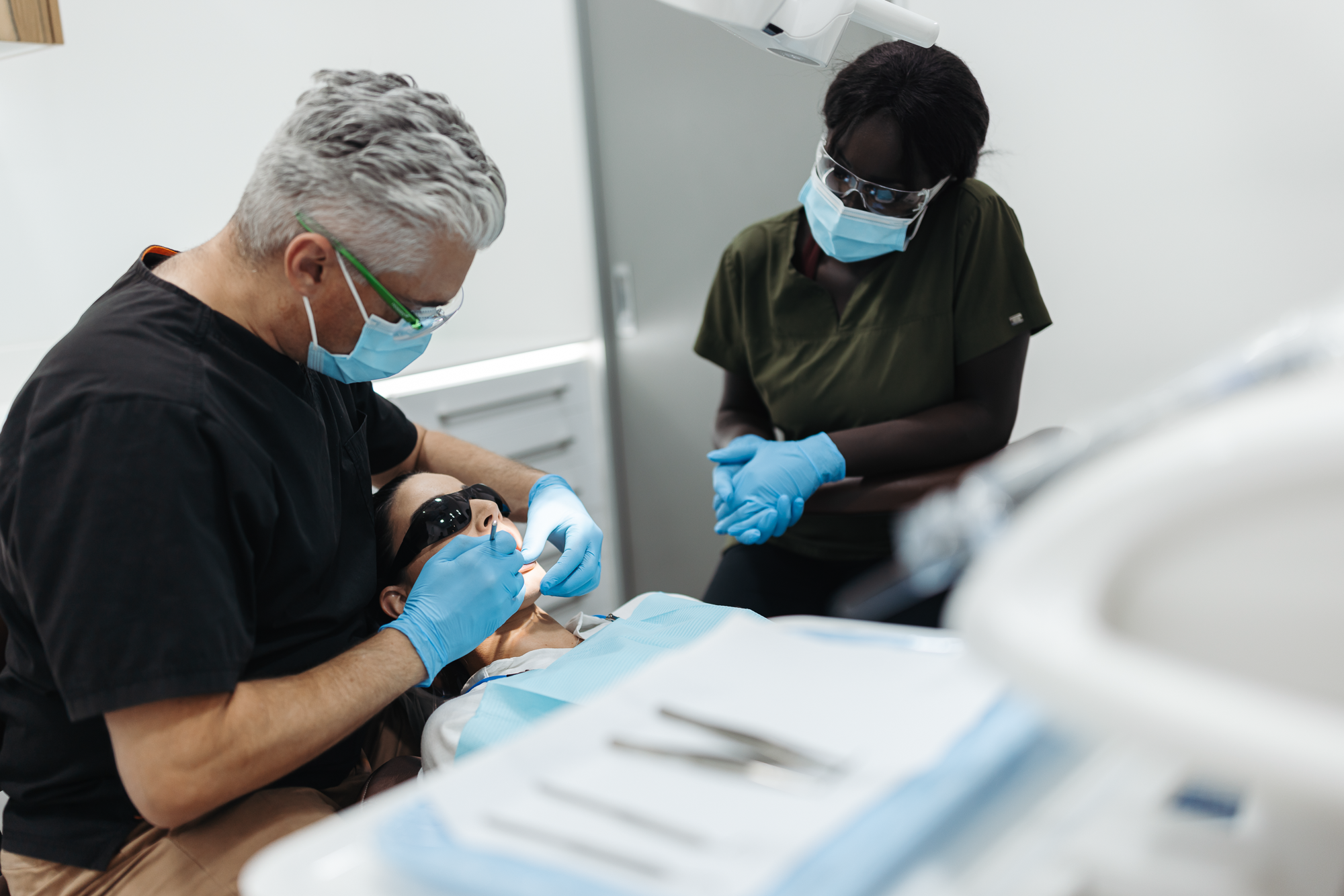A dental crown is a restoration that covers the entire surface of a tooth. Dental crowns are often used to protect weak, cracked, or broken teeth so they can continue functioning (and shining brightly) for years to come.
In addition, dental crowns can be used to improve the appearance of irregular, misshaped or discoloured teeth as a cosmetic procedure.
Usually made from porcelain or ceramic, which are strong and durable materials that closely match the colour of your natural teeth. Porcelain and ceramic dental crowns are also stain-resistant, so they will continue to look great year after year.
Depending on the circumstance, we may recommend a crown made from porcelain fused to metal (also known as a PFM Crown). Read more about the materials we use to make Dental Crowns.


